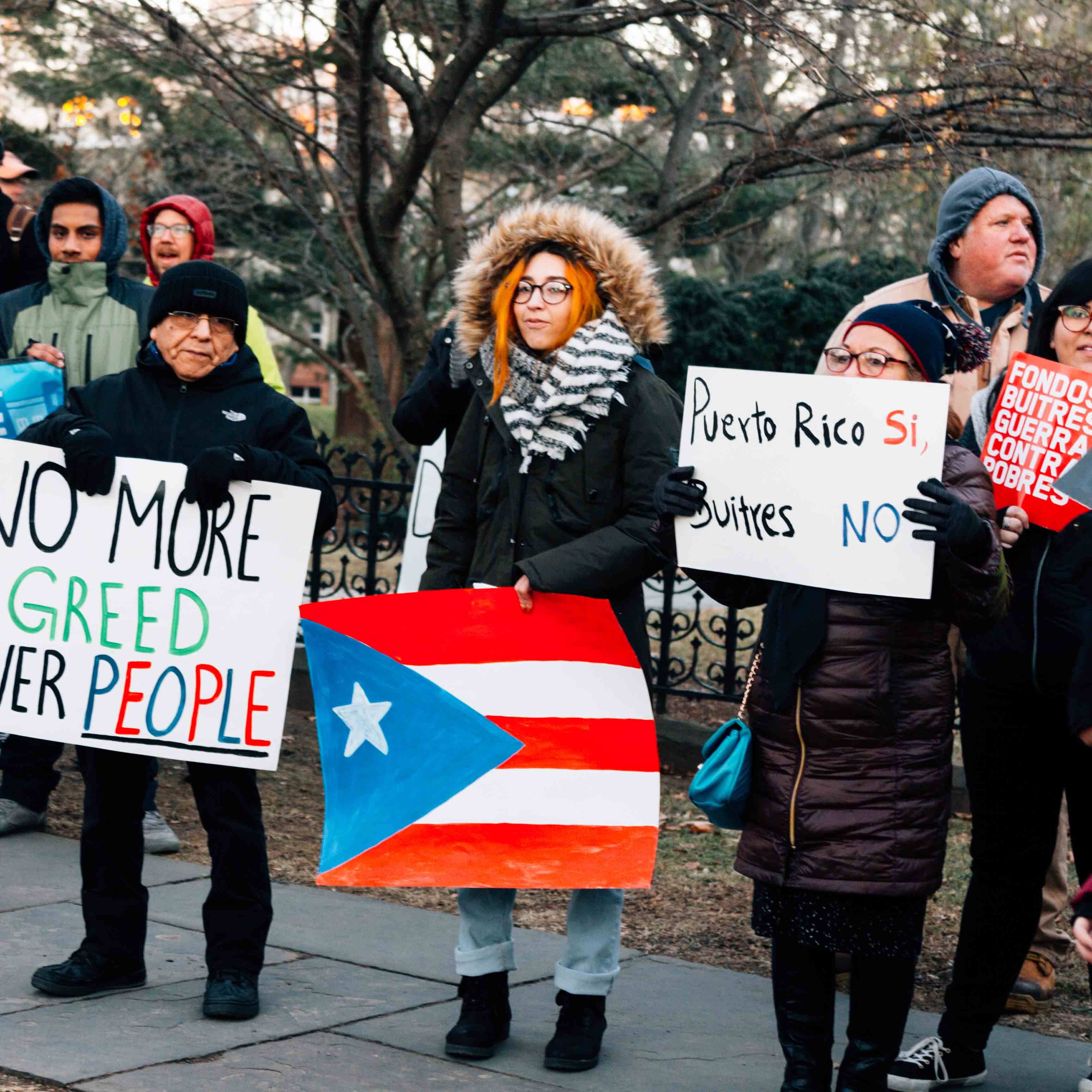
More than 100 protesters braved the cold in front of University President Peter Salovey’s home on Hillhouse Avenue Thursday afternoon, demanding that Yale disaffiliate from funds that hold Puerto Rican debt and chanting, “Put people over profit!”
The protest was part of a national campaign that calls on universities to divest from the Baupost Group, a hedge fund that owns nearly $1-billion of Puerto Rico’s $70-billion debt. According to Yale’s Form 990 for tax year 2015, as of June 30, 2016, the University had $740 million, or about 3 percent of its endowment, invested in YB Institutional Limited, a fund operated by the Baupost Group.
After Hurricane Maria hit in September 2017, pressure mounted on Puerto Rico’s creditors to fully or partially forgive the state’s debt and allow it to focus on rebuilding its economy. In a Wednesday draft submitted to the island’s federally appointed oversight board, Governor Ricardo Rosselló acknowledged that Puerto Rico will be unable to repay any portion of its debt in the next five years.
Among the rally’s attendants were five Puerto Rican families from Hartford. Gathered together and addressing the crowd in Spanish, the family members stated their names and thanked the activists for their effort.
Advocacy group Hedge Clippers sent a letter to Salovey last October urging him to prod the Baupost Group to forgive Puerto Rico’s debt. In response, Salovey tasked the Yale Advisory Committee on Investor Responsibility, or ACIR, with deliberating about the extent to which the implications of the holding were socially responsible.
According to committee chair and law professor Jonathan Macey LAW ’82, the ACIR reached a decision in January, following months of deliberations, that divestment “is not warranted where an investor is abiding by applicable bankruptcy procedures.”
“The committee’s understanding is that the U.S. has passed legislation placing the Commonwealth under federal court protection, enabling the suspension of payments and a workout with creditors, and that Baupost is abiding by that legal process,” Macey told the News.
Still, Macey noted that the committee would be interested in factual evidence pertaining to allegations of inappropriate or unethical investments in Puerto Rican debt carried out by the Baupost Group.
Julio López, who is state director of the advocacy group Make the Road CT and involved with Hedge Clippers, told the News that although he appreciates the University’s willingness to talk, the guidelines that govern the ACIR’s deliberations — contained in “The Ethical Investor,” a book written by Yale professors and students in 1972 — provide an excuse for Yale’s “inaction.”
“If Yale wanted to take a proactive approach that would support the people of Puerto Rico, they could certainly do more than simply reviewing an old document and deciding that it was enough to support their investment on the destruction of an island and its people,” López said.
López is not the only one who took issue with “The Ethical Investor” and its principles.
Travis DeShong ’19 said he attended the rally because it took aim at the same structural problems highlighted by the Yale Students for Prison Divestment, a group of which he is a longtime member.
“It’s a guideline that’s approaching 45 years old,” DeShong said. “What the ACIR constitutes as grave social injury, we believe it’s too narrow in scope, especially because it’s not definitively outlined in the book.”
Over 100 protesters marched at Harvard on Wednesday, urging the school to divest its $2-billion holding in the Baupost Group.
Jingyi Cui | jingyi.cui@yale.edu







